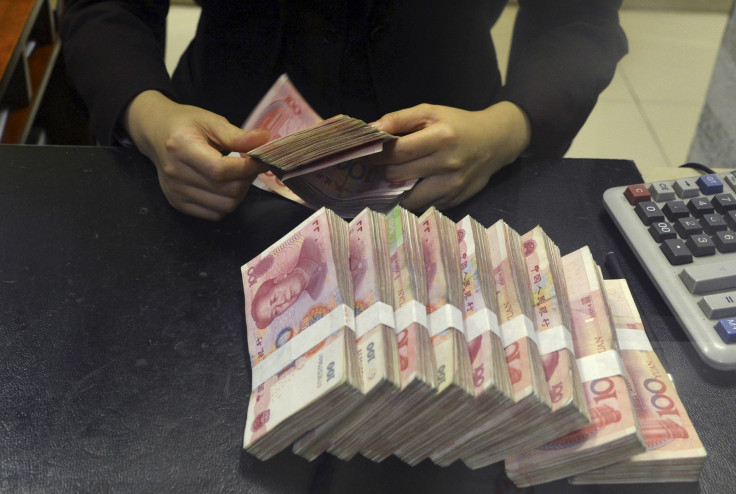China: Central bank's chief economist Ma Jun says fall in yuan just a temporary correction

The devaluation of China's yuan thrice this week is just a temporary correction following a surprise change in the country's central parity rate setting system, said the People's Bank of China's chief economist Ma Jun.
The central bank's chief economist dismissed fears that China's yuan will face a new downward pressure just as Russia and Brazil did, People's Daily said.
"Such worry is really unnecessary. Currency crisis tends to strike those countries that face problems such as current account deficit, low foreign-exchange reserve, financial deficit, excessive debt and a sluggish economy."
Following the central bank's announcement on Tuesday to improve its central parity system to "better reflect market development" in the exchange rate of the yuan against the US dollar, the yuan central parity rate fell sharply by 1,136 basis points or nearly 2% to 6.2298 against the dollar on Tuesday.
The yuan fell further on Wednesday and Thursday, after its parity rate was cut by 1.6% and 1.85% by the central bank on 11 and 12 August respectively. In the three day period, it lost 4.65% of its value against the greenback, hitting a four year low.
The central bank in a major shift in policy, took the market by surprise by saying that in setting the yuan's central parity rate against the US dollar, it will take into account the previous closing rate, demand and supply in the interbank market and the rate of major currencies.
Market observers have been sceptical that the central bank would allow the yuan to fall substantially despite promising to let its currency reflect market development, saying that it may take weeks or even months before the true intent of the central bank will be known.
They are still unsure if the depreciation of the yuan to keep China more competitive following recent weak economic and trade numbers, or a means to make the yuan more international by nudging it into the International Monetary Fund's Special Drawing Right (SDR) or basket of currencies.
Ma also noted that the opening of China's capital account has not resulted in capital flight and a downward pressure on the yuan but instead, has seen more Chinese companies and citizens investing abroad and bringing in more foreign investments.
"As long as sound measures are taken to coordinate the opening to the world, risk from cross-border capital flow can be controlled," Ma said.
Just temporary growing pains
State news agency Xinhua said that the drastic fall in the yuan since Tuesday was "just temporary growing pains as the market discovers a reasonable value for the currency."
It said the previous "flawed mechanism failed to stay true to market realities and caused wide differences between the central parity rate and real market rates, mounting huge depreciation pressure on the central parity rate."
The news agency said that the recent sharp falls in the yuan "were well grounded" as the currency has been one of the "strongest currencies in the world for years." Since 2005, it said the yuan's real effective exchange rate appreciated more than 55%.
"Though the correction process has been steeper than the general market expectation, a prolonged depreciation is not going to be the new normal for the yuan. With a more open, transparent and market-based mechanism, the guiding rate will soon arrive at a proper level," it added.
Responding to concerns in the market over China's easing economic growth, the agency said China's 7% GDP growth in the first half was in line with government target and outpaced most economies of the world.
Further, with the world's largest foreign exchange reserves stockpile, China has the full competence to "ward off irrational volatility and ensure stability in the currency's rate."
The Fitch ratings agency had said on Thursday that the yuan depreciation "highlights wider pressures on the economy" but also demonstrated that authorities remained committed to market-oriented reform, Reuters said.
© Copyright IBTimes 2025. All rights reserved.






















